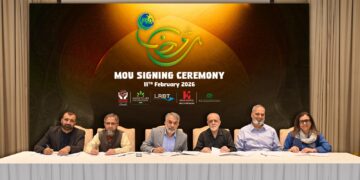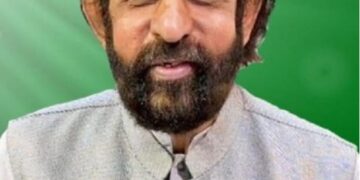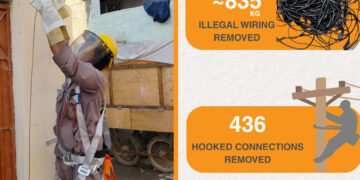Dr Mujtaba: Dr. Gholam Mujtaba, MS, MD, Ed.D..
USA : Witnessing intolerance toward analysis and opinions expressed on social media is disheartening, especially when these observations highlight merit, hard work, and justice. For instance, Sadiq Khan, the three-term Mayor of London with a Pakistani background, was recently knighted by King Charles III for his exemplary service to the people of London. In his remarks, he credited hard work, competence, and honesty as the pillars of his success.
This acknowledgment is not an isolated story; it reflects a pattern among individuals of Pakistani origin who thrive in fair and just systems. My family’s journey mirrors these values. Even as a newcomer to politics, my son secured over 86,000 votes in competitive elections in the U.S.—a testament to his popularity and principles. Despite a narrow loss, his achievement symbolizes what is possible in a system that values integrity over influence.
Can we imagine similar successes in Pakistan’s political environment, where rigging, nepotism, and kleptocracy often overshadow merit? Understanding why Pakistan lags when such practices dominate is not rocket science. Voices like ours, which advocate for honesty and accountability, are met with hostility by those who fear change. This intolerance is unacceptable.
Let us not forget that Pakistan was built on the sacrifices of families like mine and those of leaders like Sadiq Khan. The independence movement was not the endeavor of a select few but a collective struggle that united countless communities. Pakistan’s foundation belongs to all its citizens, not just those who stayed within its borders post-independence. There are no dual citizenship standards—every Pakistani has an equal right to voice their concerns and opinions.
The overseas Pakistani community, often dismissed by critics, remains a lifeline for Pakistan. Each year, Pakistan’s annual budget of $50 billion is significantly bolstered by $33 billion in remittances from overseas Pakistanis. These funds support families, increase foreign reserves, and sustain the economy. Dismissing this contribution as mere familial support undermines its profound national impact. In contrast, the 235 million residents of Pakistan collectively contribute less than $17 billion—less than what 5 million overseas Pakistanis manage. This stark disparity should compel introspection, not arrogance.
To those who silence voices of truth and justice, know this: we will not be subdued. Blind loyalty to those in power has eroded Pakistan’s progress—the cycle of labeling outgoing leaders as traitors and incoming ones as patriots must end. Patriotism should not be measured by proximity to power but by adherence to principles of justice, law, and democracy.
While I have consistently opposed Imran Khan politically, I support his stance on justice and democratic principles when they align with fairness and the rule of law. My position is not tied to party allegiance but to the enduring values of honesty and integrity.
It is time for Pakistan to embrace these values, acknowledge the contributions of all its citizens—whether at home or abroad—and build a future founded on merit, not sycophancy. Together, let us reject the culture of subservience and foster a nation that honors the sacrifices and contributions of every Pakistani.
[6:28 pm, 01/01/2025] Usa Dr Mujtaba: _______________-
About the Author
Dr. Gholam Mujtaba, MS, MD, Ed.D., is a prominent voice in global politics and a champion of democratic principles. He serves as Chairman of the Pakistan Policy Institute USA and has been honored for his leadership and advocacy on issues affecting Pakistan and the diaspora community. A dedicated family man and political leader, Dr. Mujtaba brings a wealth of experience and insight to debates on justice, meritocracy, and national progress. He continues to inspire with his unwavering commitment to honesty, accountability, and the betterment of society.
________________
Note: The evidence is submitted below. However, the measure of loyalty to Pakistan must be based on tangible actions and evidence, not mere rhetoric. Responses should be grounded in facts. Also, please remember that two wrongs do not make a right; Imran Khan’s actions do not absolve others from accountability.




















